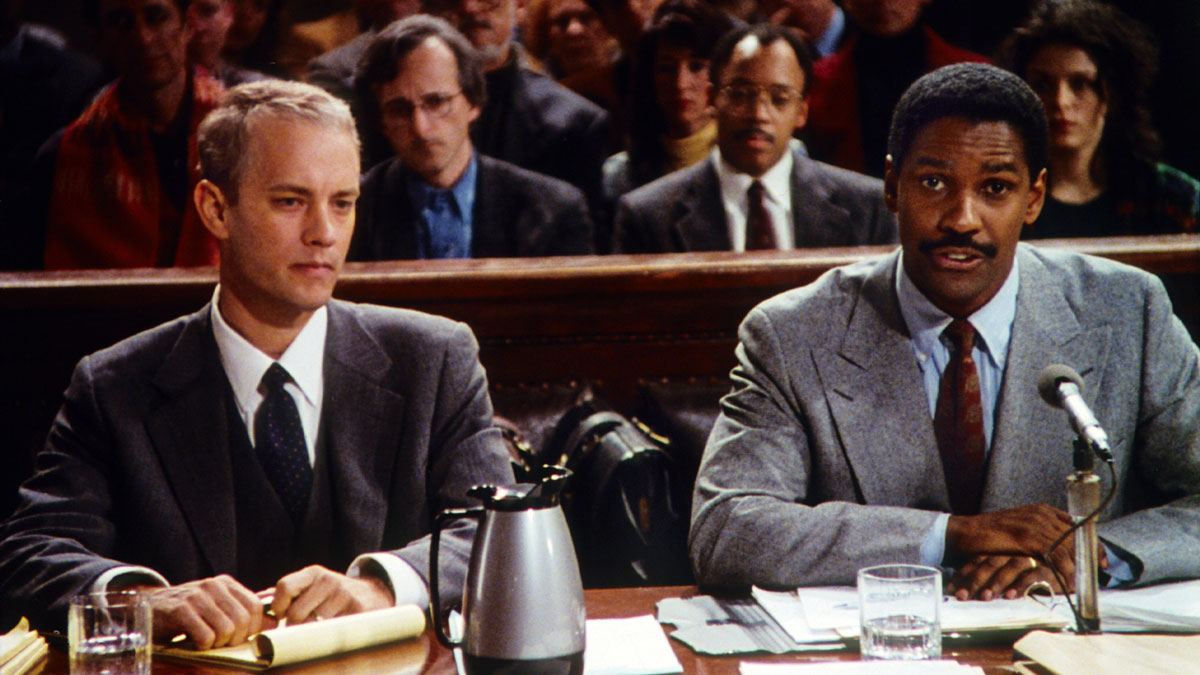
(c) Photofest / Getty Images
“Philadelphia” Jonathan Demme depicts human freedom and liberation in the land of freedom
2021.01.19
Jonathan Demme's passion for music
Along with this commitment to themes, what makes a Demi movie a Demi movie is the use of music. "Music is First Love, and movies are my second love." Demi once said this in the American film magazine ``Premier'', but in her debut film ``Women's Prison Daytime Riot'', she used John Cale, known as a musician from New York's ``Velvet Underground''. He was also in charge of the music for Demi's masterpiece from the 1980s, ` `Something Wild '' (1986).
In addition, David Byrne, the mainstay of Talking Heads, was in charge of the theme song for ``Something Wild'' and also participated in `` I Married to the Mob '' (1988). Demme has always liked to use cutting-edge New York musicians in her directorial works, and the soundtrack for ``Philadelphia'' is also wonderful.
When he created the title background, he played Neil Young's " Southern Man " (from Young's masterpiece album " After the Gold Rush " in 1970) as a temporary sound. The song has an impressive wild guitar sound, and Demi wanted to use a sound with this kind of touch. The idea was to create a masculine atmosphere for male audiences who are prejudiced against gays by intentionally making them listen to hard guitar sounds, making it easier for them to get into the movie.
I asked Neil to write a new song, but what he ended up writing was ``Philadelphia,'' a lyrical ballad with a different tone from ``Philadelphia.'' It plays towards the end of the movie (the home movie-style footage in which this song plays is said to have been created based on the work of Derek Jarman, a radical British director who died of AIDS).
"Philadelphia" final movie
So, looking for a masculine song, they asked Bruce Springsteen to do the opening song. However, the song that was completed there, ``Streets of Philadelphia,'' was also a number that touched the heart, and was not the wild tune that Demi had originally planned. However, the song ended up being a perfect fit for the opening scene, which captures the various people in Philadelphia. This is the first time Springsteen has written a song for a movie.
Both Springsteen and Young were nominated for the Oscar for Best Original Song, with the former winning. At the award ceremony, two musicians performed live on stage, and as a rock fan, I was immersed in a luxurious feeling. (The American magazine Rolling Stone also called it ``the most unforgettable rock performance in the history of the Oscars.'' It became a performance scene by musicians,'' praising the presence of these two people.)
Springsteen “Streets of Philadelphia” MV
This is an ordinary drama that is not even a musical, and two songs are nominated for Oscars. This is an amazing feat because Demi is a music connoisseur. The soundtrack also includes numbers by Peter Gabriel, Sade, and more, making it a fulfilling album.
Also, in the party scene of the movie, the famous song " Heaven " by Talking Heads is sung by female singer Q Lazarus, and the lyrics express the feelings of the main character who is nearing death, and this is also where Demi's sense of style is reflected. It is shining now.
The most impactful scene in which music is used is when the main character, who is nearing death, performs with Maria Callas' opera ` `La Mama Morta '' (from the opera ``Andrea Chénier'') in the background. right. Callas is known as an opera singer favored by gay people, and the main character gives an overwhelming performance, as if translating the lyrics into English, saying ``My life'' and ``My love,'' as if his last life was on fire.
The black lawyer watches the scene in amazement, but even when he returns home, the impact of the sound does not leave his body. The client is on the brink of death, but when the lawyer returns home, a newborn baby is waiting for him. The contrast between life and death makes this famous scene even more impactful.
Text: Sawako Omori
Movie journalist. His books include "Lost Cinema" (Kawade Shobo Shinsha) and other books, and his translations include "Woody" (by D. Evanier, Kinema Junposha). Contributes to magazines such as ``Weekly Women'', ``Music Magazine'', and ``Kinema Junpo''. A research book based on the web series, ``Mini Theater Revisited,'' is also scheduled to be published.
(c) Photofest / Getty Images

